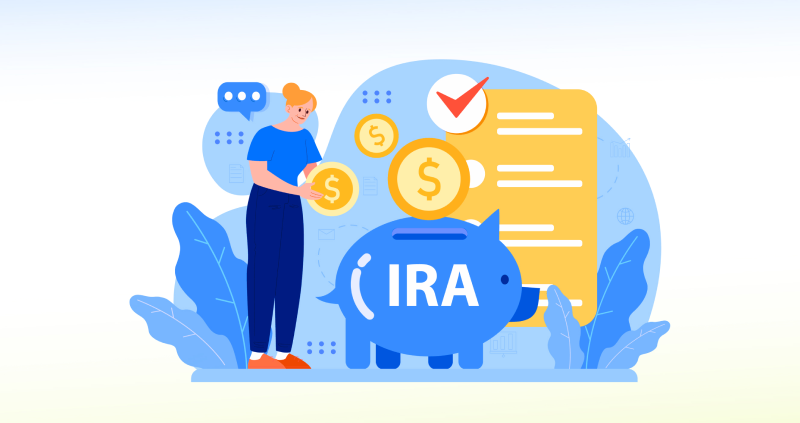Immediate annuity: Definition and examples
What is an immediate annuity plan, and how does it work?
Home > Retirement > Immediate Annuity
Retirement planning: An immediate annuity is a financial product that people approaching retirement may wish to consider.
Lump sum: In exchange for a lump sum, your insurance provider will pay you, the annuitant, a guaranteed income, typically beginning immediately.
Choose your payment mode: You can opt to receive payments for a lifetime or a set period, and select between monthly, quarterly, or annual income.
What is an immediate annuity?
If you’re wondering, “What does immediate annuity mean?,” you’re not alone. Also known as a Single Premium Immediate Annuity (SPIA), this is a financial product sold by insurance companies that allows you to convert a lump sum of money into a guaranteed, regular income stream, either for your lifetime or for a specified period. If you’re approaching (or are already in) retirement, you may be considering an immediate annuity as a type of retirement income strategy.
How does an immediate annuity work?
Now we’ve defined immediate annuity, let’s look at how it works. First, you’ll pay a lump sum to your chosen insurance company — the minimum investment usually starts at around $5,000–$10,000. Then, you’ll decide how often you want to receive payments (this could be monthly, quarterly, or annually), and if you wish to add any additional benefits to your plan.
Once your immediate annuity plan is set up, the insurance company will start paying you a regular income, either for a specified period or for the rest of your lifetime.
Types of immediate annuities
There are several types of immediate annuity plans, so it’s important to do your own research to find the one that best suits your needs and financial situation. These include:
Immediate lifetime annuity
Also known as an immediate income annuity, this type of plan will make payments for the rest of your life, starting straight away. However, depending on the payout option you choose, if you die earlier than expected, the insurance company may keep any remaining balance.
Joint lifetime annuity
A joint lifetime annuity works similarly to a lifetime annuity, but you can add a second person to the plan, ensuring payments continue even if one of the annuitants dies early.
Period certain annuity
This type of plan pays out for a set period, typically 10 or 20 years. Usually, even if the annuitant dies, this type of annuity will continue to pay out to a beneficiary named in the contract until the specified number of years has elapsed.
Variable annuity
With most annuity plans, the amount that is paid out will be fixed, so you’ll know exactly how much you’ll receive each month, quarter, or year. With variable immediate annuities (also known as flexible annuities or investment annuities), your money is held in investment sub-accounts tied to assets such as stocks, bonds, and money market funds, so the value of your annuity could go up as well as down.
Deferred annuity
A deferred annuity allows you to delay the start of your annuity payments by years or even decades. This means you can also fund your annuity contract over time, rather than needing to provide an up-front lump sum. Some people find this a valuable option for tax reasons, for example, if receiving additional income through the annuity payment now would push them into a higher tax bracket. Payments will begin at a future date specified in the contract.
When does an immediate annuity begin making payments?
As the name suggests, an immediate annuity begins making payments immediately, as the primary reason for purchasing this type of annuity plan is to establish an immediate income stream for retirement.
However, it also depends on the frequency, or mode, you’ve selected for your immediate annuity plan. For example, if you’ve chosen monthly payments, you should receive your first payment one month after purchasing the plan. For quarterly payments, you’d receive your first immediate annuity payment one quarter after purchase, and so on.
An example of an immediate annuity
Here’s a simplified calculation of a $100,000 immediate lifetime annuity. The amount you receive will depend on several factors, including age, gender, the insurer’s rates, and any additional benefits you choose to add to your immediate annuity, meaning this figure could look different for you. In this example, our annuitant is a 65-year-old man holding a fixed immediate lifetime annuity, and the interest rate offered by the insurer is 4%.
A $100,000 investment = Around $550–$650 payout per month, depending on the exact plan chosen.
Pros and cons of immediate annuities
As with any financial decision, it’s essential to look at the potential benefits and risks of a product and weigh up whether it’s right for you.
Pros of immediate annuities
Guaranteed income for life - With some immediate annuity plans, you’ll receive a fixed stream of income for the rest of your life, which can be helpful for budgeting in retirement.
Relatively simple - Once you’ve paid your lump sum, you’ll start to receive payments immediately, with no ongoing management or financial decisions required from you.
No market risk - With fixed immediate annuities, your annuity balance is safe from market volatility, so you’ll receive the same payment every time.
Customizable options - With some plans, you can add features such as a joint payout for a spouse, inflation adjustments, or a cash refund for beneficiaries in the event the annuitant dies early.
Cons of immediate annuities
Low liquidity - Once you’ve invested in an annuity, you no longer have access to this money, and it can’t be canceled for a refund. Surrender charges may also apply if money is withdrawn early.
Payments stop when you die - Unless you purchase an additional death benefit option, payments will cease upon your death, rather than being passed on to a spouse or beneficiary.
Can be a gamble - Opening an annuity represents a gamble in terms of how long you’re going to live: if you die earlier than expected, you may not “break even” on your investment. (This is the point at which your cumulative immediate annuity payments exceed your initial lump sum investment. The longer you live beyond this point, the more valuable the annuity becomes.)
- Inflation risk - Without an inflation-protection add-on to your immediate annuity plan, inflation could decrease the purchasing power of your fund as you age.
If you are unsure about annuities, find out whether annuities are a good investment.
What to consider before purchasing an immediate annuity
If you’re looking for a steady, fixed income to cover your expenses through retirement, a guaranteed immediate annuity may be right for you. However, before purchasing any plan, you should ensure that it aligns with your financial goals, risk tolerance, and future needs. Here are some things to consider:
Age and life expectancy
As a general rule, the older you are, the higher your payments will be, as the insurer will anticipate fewer payouts. If you’re younger and in good health, you may not get the same value from an annuity plan.
Liquidity needs
An immediate annuity locks away your money, so if you’re worried about needing funds for potential emergencies in the future, an annuity may not be the right option. Ensure you have alternative liquid options or an emergency fund before committing a substantial amount of money to an annuity.
Payout options
As we’ve covered on this page, some immediate annuity plans will stop paying out altogether when you die. If you’re in the process of estate planning and worried about providing your beneficiaries with security, you could consider a period certain annuity (which guarantees payments for a set period even if you die before the term ends), or add an optional death benefit to your plan.
Fees and costs
As with any financial product, ensure you’ve read the terms and conditions and are aware of any administration fees, commissions, or surrender charges associated with your plan.
Tax and financial implications
If you use retirement funds (like an IRA or 401(k)) to purchase an immediate annuity, the income is taxed as ordinary income. If you use after-tax money, the return of the principal (the lump sum) is not taxed, but the earnings are. You should ensure you understand how the annuity’s tax treatment will impact your overall tax bill, as well as how it could affect Social Security benefits.
Save for retirement with Raisin
Of course, there are several other options to help you save for retirement, such as bonds, dividend-paying stock, and high-yield savings accounts. With Raisin, you can manage savings accounts through one easy-to-use platform, helping you keep your finances organized in a single place as you grow your money.
The above article is intended to provide generalized financial information designed to educate a broad segment of the public; it does not give personalized tax, investment, legal, or other business and professional advice. Before taking any action, you should always seek the assistance of a professional who knows your particular situation for advice on taxes, your investments, the law, or any other business and professional matters that affect you and/or your business.


